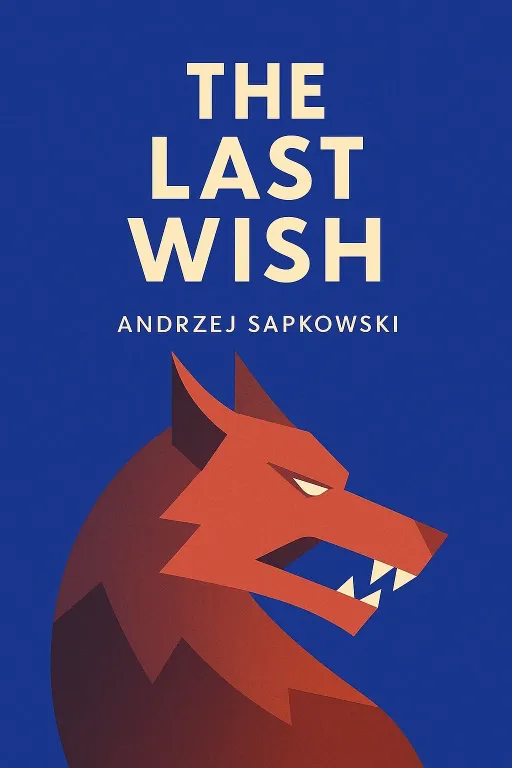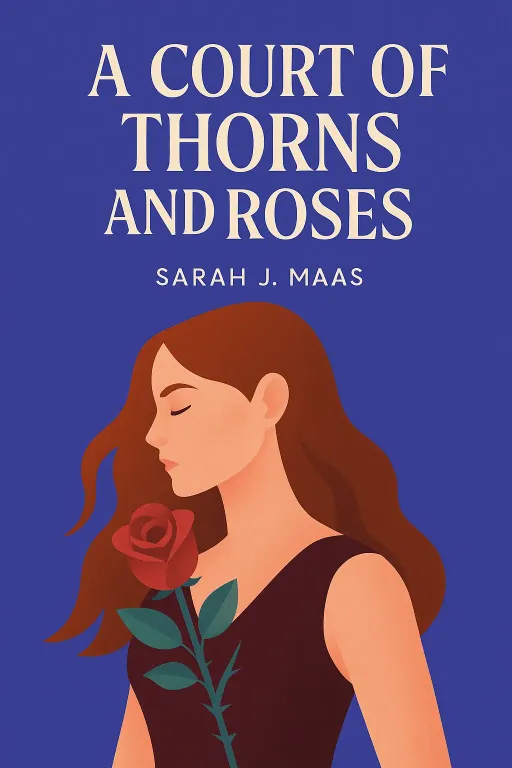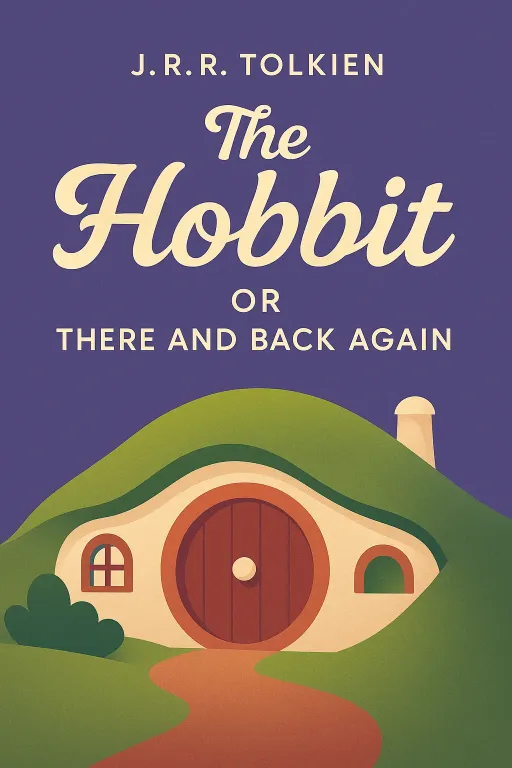
The Last Wish
9 minIntroduction
Narrator: A man stands alone in a marketplace, his sword dripping with blood. Around him lie the bodies of a band of mercenaries, and the townsfolk he just saved stare at him not with gratitude, but with horror and disgust. They hurl stones and curses, branding him a butcher. He was faced with an impossible choice: allow a massacre to happen or become a killer himself. He chose what he believed was the lesser evil, only to find that evil, in any form, leaves an indelible stain. This harrowing scene of moral ambiguity lies at the heart of the world created by Andrzej Sapkowski in his collection of short stories, The Last Wish. It introduces a universe where fairy tales are twisted, monsters are not always what they seem, and the lines between right and wrong are perpetually blurred.
The Fallacy of the Lesser Evil
Key Insight 1
Narrator: At the core of The Last Wish is a recurring philosophical dilemma: if forced to choose between two evils, which path should one take? The protagonist, the witcher Geralt of Rivia, operates by a personal code. He famously states, "Evil is evil. Lesser, greater, middling, it's all the same... If I'm to choose between one evil and another, then I prefer not to choose at all." Yet, the world consistently conspires to force his hand.
This principle is brutally tested in the town of Blaviken. Geralt finds himself caught between two dangerous individuals. The first is a wizard named Stregobor, who has locked himself in a tower, terrified of a young woman named Renfri. He claims she is a cursed mutant, a product of a dark prophecy, and insists that killing her is a necessary, "lesser" evil to prevent a greater catastrophe. The second is Renfri herself, a former princess turned ruthless bandit leader. She tells Geralt a story of betrayal and abuse at Stregobor's hands, arguing her quest for revenge is justified. She gives Geralt an ultimatum: help her kill the wizard, or stand aside.
Geralt refuses to be a pawn for either side. He tries to de-escalate, urging Renfri to leave town and abandon her vengeance. She seems to agree, but it's a lie. Renfri plans to force Stregobor out of his tower by slaughtering the townspeople in the marketplace, an event that would be known as the "Tridam Ultimatum." Faced with the imminent murder of innocents, Geralt’s neutrality shatters. He is forced to make a choice. He confronts Renfri’s gang in the marketplace and, in a grim, efficient display of swordsmanship, kills them all, including Renfri. The townspeople, emerging only after the violence is over, see only the carnage. They don't see the lives he saved; they see the "Butcher of Blaviken." Geralt learns the hard way that in his world, refusing to choose is a luxury he often cannot afford, and the consequences of choosing are a burden he must always bear.
The True Face of a Monster
Key Insight 2
Narrator: Sapkowski constantly challenges the traditional fantasy trope of what constitutes a monster. In Geralt’s world, monstrosity is rarely defined by fangs or claws, but by cruelty, prejudice, and malice—qualities most often found in humans. This theme is powerfully explored in the story "A Grain of Truth."
While traveling, Geralt investigates a pair of corpses and follows the trail to an isolated, eerie manor. There, he expects to find a vicious beast. Instead, he meets Nivellen, the master of the house, who has the head of a bear and a monstrous, beast-like body. Yet, despite his terrifying appearance, Nivellen is surprisingly eloquent, witty, and hospitable. He explains that he was cursed years ago after committing a terrible crime. For years, he has sought to break the curse, believing, as fairy tales suggest, that it requires the love of a maiden.
Living with him is a beautiful, dark-haired woman named Vereena, whom Nivellen deeply loves. Geralt, however, senses something is wrong. His witcher medallion, which detects magic and monsters, hums in her presence. He soon discovers the truth: the beautiful Vereena is a bruxa, a powerful and deadly type of vampire. She is the true monster of the manor, the one responsible for the murders. In the ensuing battle, Nivellen is forced to make a heartbreaking choice, helping Geralt kill the woman he loves. In the aftermath of her death, Nivellen’s curse is unexpectedly broken, not by a maiden’s kiss, but by the power of true love and blood. The story masterfully inverts expectations, showing that the creature who looks like a monster can possess more humanity than the one who appears perfectly human.
The Unavoidable Grip of Destiny
Key Insight 3
Narrator: While Geralt fights to make his own choices, the concept of Destiny is a powerful, almost tangible force in his world. It operates through ancient laws and binding oaths, chief among them the "Law of Surprise." This law dictates that a person saved by another can offer their savior a boon that is unknown to them both—"that which you already have but do not know." It often refers to an unborn child.
Geralt becomes entangled in this very law when he attends a banquet for Princess Pavetta of Cintra, at the behest of her mother, the formidable Queen Calanthe. The event is meant to be a political negotiation for Pavetta’s hand in marriage. However, the feast is interrupted by the arrival of a knight in horned helmet, Urcheon of Erlenwald, who is afflicted by a curse that makes him monstrous from dawn until midnight. He claims Pavetta’s hand through the Law of Surprise, an oath made by her father years ago.
When the Cintran lords try to kill Urcheon, Geralt defends him. In the chaos, Princess Pavetta reveals she has latent magical abilities and loves Urcheon despite his curse. After the situation is resolved and the curse is lifted, a grateful Urcheon, whose real name is Duny, offers Geralt any reward he desires. Weary of the world and perhaps acting on a cynical whim, Geralt invokes the same ancient law that started the conflict. He asks for "that which you already have but do not know." At that moment, it is revealed that Princess Pavetta is pregnant with Duny’s child. Without intending to, Geralt binds his fate to that of their unborn daughter, a child who will come to be known as Ciri and who will change his life forever.
The Last Wish That Binds Two Souls
Key Insight 4
Narrator: Geralt’s life is defined not only by monsters and destiny, but also by the tumultuous, passionate, and deeply complex relationship he shares with the sorceress Yennefer of Vengerberg. Their story begins, fittingly, with chaos. After Geralt's companion, the bard Dandilion, accidentally releases a powerful djinn from a bottle, he is gravely injured. Desperate for a magical cure, Geralt seeks out the nearest sorcerer, who happens to be Yennefer.
Yennefer is beautiful, brilliant, and ruthlessly ambitious. She agrees to help, but sees the djinn as an opportunity to gain immense power for herself. She traps the djinn, intending to make it her slave, and manipulates Geralt, using him as a magical conduit and a puppet to terrorize the town's authorities who stand in her way. But the djinn is too powerful to be contained. As Yennefer’s spell begins to fail and the town is torn apart around them, Geralt realizes a crucial detail: the djinn is bound to him, its master, and will not be free until his third and final wish is spoken.
With Yennefer’s life hanging in the balance, Geralt makes his last wish. The wish itself is not stated, but its effect is immediate: the djinn is freed, the chaos ends, and Geralt and Yennefer are bound together. He wishes for their fates to be intertwined, condemning them—or perhaps blessing them—to each other. This act establishes the foundation of their relationship: a bond born of magic, danger, and a desperate choice, creating a love story as volatile and powerful as the magic that forged it.
Conclusion
Narrator: The single most important takeaway from The Last Wish is that the clear-cut morality of fairy tales is a fiction. True monstrosity is a matter of choice, not appearance, and navigating a world steeped in shades of gray requires more than a strong sword arm—it requires a complex, if flawed, moral compass. Geralt’s journey is a constant struggle against being defined by his grim profession and the fearful prejudice of others.
The book leaves us with a challenging question that extends far beyond its fantasy setting: When we are faced with our own "lesser evils," how do we choose? And more importantly, how do we live with the person we become after the choice is made?

